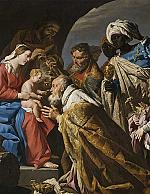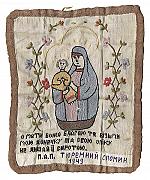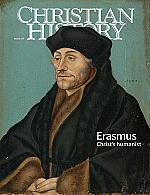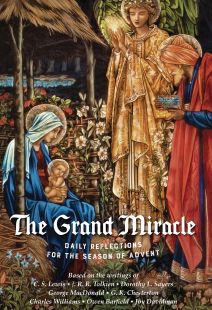Day 27. The Drama of the Incarnation
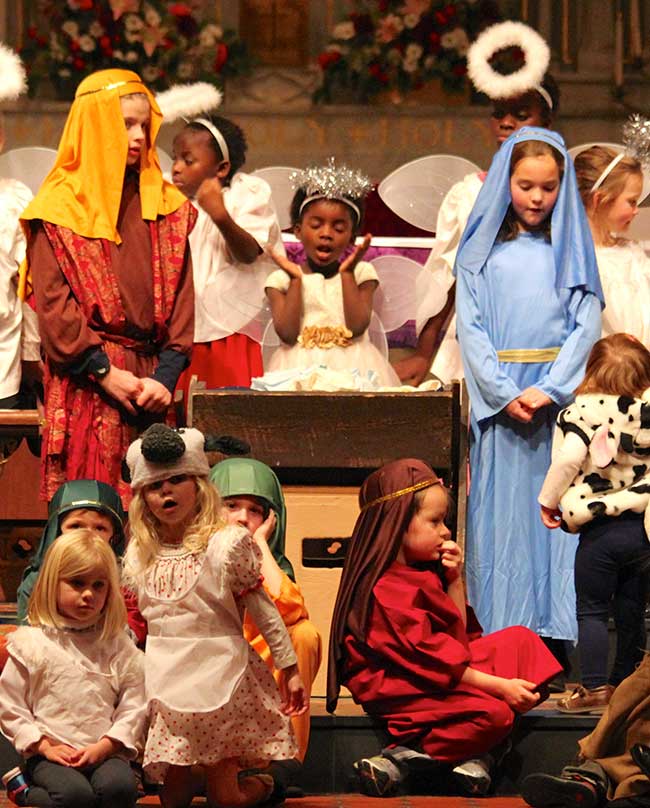
[above: Children’s Christmas Pageant—Nathan Harper, St. John’s Episcopal, Roanoke]
Have this mind among yourselves, which is yours in Christ Jesus, who, though he was in the form of God, did not count equality with God a thing to be grasped, but emptied himself, taking the form of a servant, being born in the likeness of men. (Philippians 2: 5–7, RSV)
The Christian faith is the most exciting drama that ever staggered the imagination of man—and the dogma is the drama.
—Dorothy L. Sayers, “The Greatest Drama Ever Staged”
Christmas provided my first experience of drama as I joined children in bathrobes playing Magi, while others, topped with pillow cases, portrayed shepherds at the manger. Only later did I learn the historical significance of such performances. Christians as early as the tenth century formally acted out the Advent story. Medieval priests recognized that Christian belief is inherently exciting or, as Sayers put it, “the dogma is the drama.”
Hence, when I taught Medieval Drama at a famous secular university, I required students to read the Bible stories upon which medieval plays were based so that we could discuss interpretive choices made by the dramatists. Very careful to not impose my Christian beliefs, I never once preached the gospel or shared my testimony; I merely exposed students to the medieval texts and the Biblical material that inspired them. At the end of the course, numerous students expressed amazement about how much more sophisticated Christianity was than they had been led to believe. One, an unwed mother, shared with me, “After studying medieval drama I can believe that Jesus still loves me.”
But after reading effusive student evaluations praising my course, university officials pulled Medieval Drama from my schedule, never allowing me to teach the course again. Like Herod suspicious of the Magi, those in charge often revile the search for a lord other than the ones they approve of. Jesus, in contrast, gave up all power, as the Magi explain to Herod in an eleventh-century play: “He whom in his own special vastness / The heavens, the earth and the wide seas cannot contain, / Born from virgin womb, is laid in a manger.”
The dogma is indeed the drama.
PRAYER: Dear God, you have called us to continue dramatizing dogma by following the example of Christ. Thank you for the script of the Bible to direct us as we live out our roles as children of God. Amen.
By Crystal Downing
[Christian History originally published this article in Christian History Issue #133+ in 2019]
Crystal Downing is codirector, with her husband, David, of the Marion E. Wade Center at Wheaton College, Illinois. Her first book, Writing Performances: The Stages of Dorothy L. Sayers, inspired three more books about the relationship between faith and culture, the most recent being Salvation from Cinema: The Medium Is the Message.Next articles
Letters to the editor. Christ and culture in Russia
Readers respond to Christian History
the editors and readersSupport us
Christian History Institute (CHI) is a non-profit Pennsylvania corporation founded in 1982. Your donations support the continuation of this ministry
Donate



